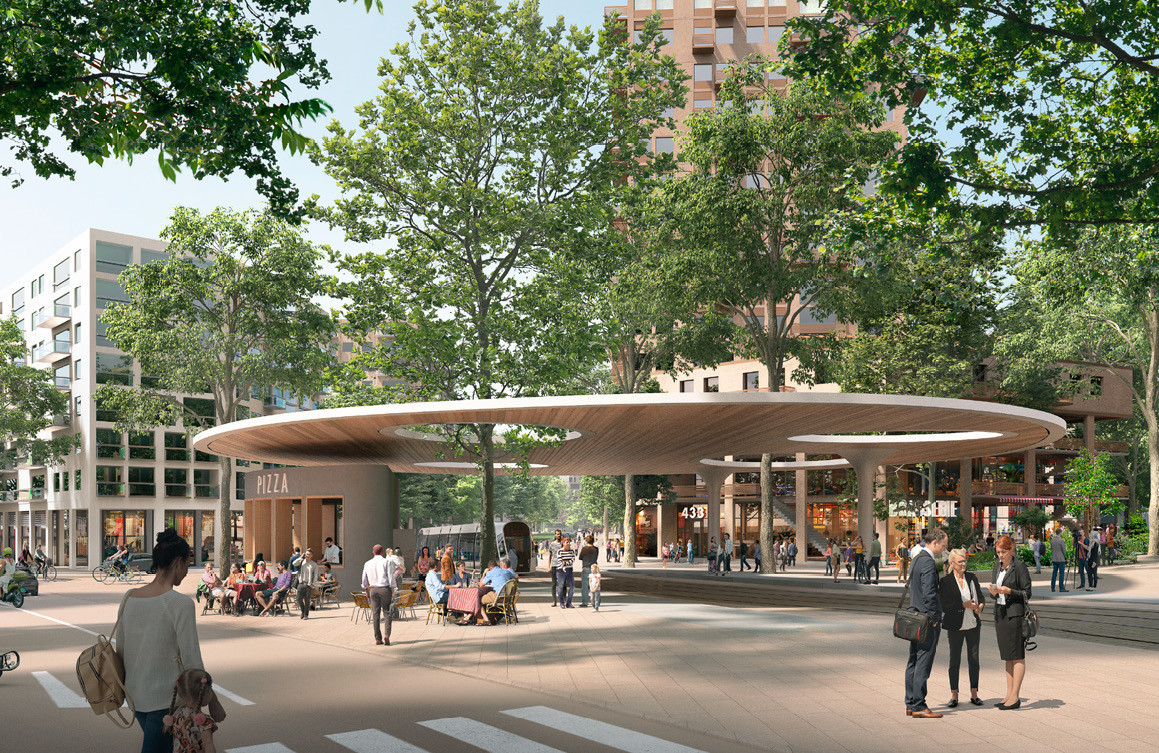The Kuebebierg project by architect Mathis Güller is set to create around 3,127 affordable housing units within the next 15 years. As demanded by the Fonds Kirchberg, public spaces will have a drastically reduced presence of cars with a goal of just 0.5 car parking spaces for each accommodation. Six common parking lots are planned to respond to the demand of car owners without prioritising access for the vehicles.
“Kuebebierg will be a neighbourhood structured by the presence of pedestrians. Cars no longer define the city,” states Güller.
A mobility hub will offer alternative transport services such as car-sharing, bike parks and workshops and more fluid access to public transportation.
The neighborhood should become a space where communities and nature come together. With two principal axes, a linear parc and the tram line coursing through it, Güller’s project aims to turn the urban space greener. A natural swimming pool and urban farm are also planned.
Another project highlighted in the report was the EIB’s third extension building with a surface of 50,000m2 at boulevard Konrad Adenauer. The building will be constructed following urban guidelines by the Fonds Kirchberg and will have seven floors. After this project is finished, the main building of the EIB will undergo significant renovations which will allow for all employees dispatched at decentralised locations to work in the building.
The EIB’s new building—the contract for which was signed on 19 May 2022--will be put up by Rizzani de Eccher (Italy), Rizzani de Eccher (Luxembourg) and Ballast Nedam International Projects from the Netherlands. “The building will be functional, efficient and ecological and will offer the EIB the needed flexibility to adapt to future developments,” states the Fonds Kirchberg in its report. The premises follow the Nearly Zero Energy Building EU standard which goes hand-in-hand with the EIB role as the bloc’s so-called climate bank.
